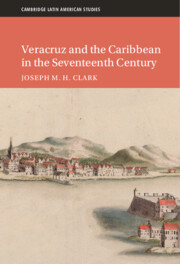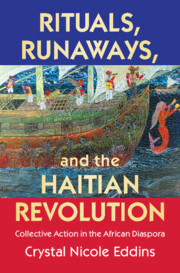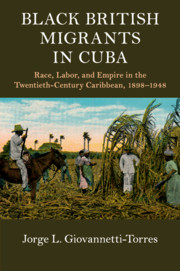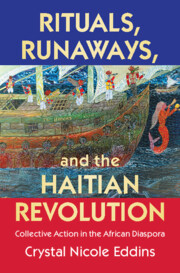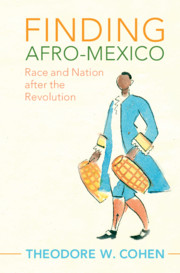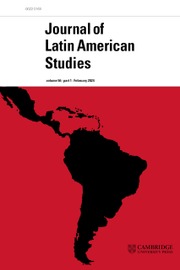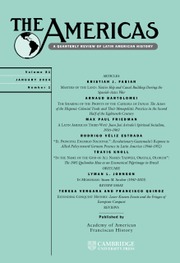Veracruz and the Caribbean in the Seventeenth Century
Part of Cambridge Latin American Studies
- Author: Joseph M. H. Clark, University of Kentucky
- Date Published: January 2023
- availability: Available
- format: Hardback
- isbn: 9781009180313
Hardback
Other available formats:
eBook
Looking for an inspection copy?
Please email [email protected] to enquire about an inspection copy of this book
-
In the seventeenth century, Veracruz was the busiest port in the wealthiest colony in the Americas. People and goods from five continents converged in the city, inserting it firmly into the early modern world's largest global networks. Nevertheless, Veracruz never attained the fame or status of other Atlantic ports. Veracruz and the Caribbean in the Seventeenth Century is the first English-language, book-length study of early modern Veracruz. Weaving elements of environmental, social, and cultural history, it examines both Veracruz's internal dynamics and its external relationships. Chief among Veracruz's relationships were its close ties within the Caribbean. Emphasizing relationships of small-scale trade and migration between Veracruz and Caribbean cities like Havana, Santo Domingo, and Cartagena, Veracruz and the Caribbean shows how the city's residents – especially its large African and Afro-descended communities – were able to form communities and define identities separate from those available in the Mexican mainland.
Read more- Combines Mexican, Caribbean, and Atlantic perspectives to examine social and cultural development
- Sheds light on the importance of Veracruz and the wider significance of Mexico and its role in the Atlantic World
- Blends environmental, economic, social and cultural history to decenter colonial ideologies embedded within archives and provide new ways of thinking about the African diaspora and identity construction
Awards
- Honorable mention, 2024 Bandelier/Lavrin Book Prize, Rocky Mountain Council for Latin American Studies
Reviews & endorsements
'In this deeply researched and original book, Joe Clark argues for a distinct Mexican-Caribbean urban history. Africans and their descendants formed the majority population of seventeenth century Veracruz; Clark sheds light on their social, cultural, and economic roles in Veracruz and the circum-Caribbean networks of Havana and Cartagena. An important contribution to Mexican, Caribbean, and Atlantic World histories.' Jane Landers, author of Atlantic Creoles in the Age of Revolutions
See more reviews'This richly documented history of Veracruz gives new meaning to the bound waters of the Gulf of Mexico and the Caribbean Sea. Joe Clark demonstrates the utility of seeing beyond the lines drawn on imperial maps to understand the web of relations that connected Afro-diasporic communities. It is an exceptional achievement.' Tatiana Seijas, author of Asian Slaves in Colonial Mexico: From Chinos to Indians
'This excellent, long-awaited study breaks new ground by examining seventeenth-century Mexico in relation to the Spanish Caribbean. Creatively employing an impressive range of disparate sources, Clark opens multiple new ways of envisioning early colonial Veracruz as a Black and Caribbean space.' David Wheat, author of Atlantic Africa and the Spanish Caribbean, 1570–1640
'…Clark has produced a dynamic history of seventeenth-century Veracruz. Crucially, by moving beyond the geographic framings privileged by elites, he demonstrates the importance of regional, granular perspectives for uncovering the experiences of individuals, especially those of African descent, within a multifaceted Caribbean world.' Casey Schmitt, Hispanic American Historical Review
'… a very welcome contribution to Latin American historiography.' Ramona Negrón, International Journal of Maritime History
'Clark's monograph makes a meaningful contribution to the historiographies of New Spain, as well as the Caribbean. His conclusion centers on a map that characterizes the Caribbean as the Mexican archipelago, forcing scholars to think about geography and the ways persistent classifications can - and should - be challenged.' Keith Richards, The Latin Americanist
Customer reviews
Not yet reviewed
Be the first to review
Review was not posted due to profanity
×Product details
- Date Published: January 2023
- format: Hardback
- isbn: 9781009180313
- length: 344 pages
- dimensions: 235 x 156 x 25 mm
- weight: 0.66kg
- availability: Available
Table of Contents
Introduction
Part I. Building the Mexican-Caribbean World:
1. Veracruz before the Caribbean
2. Environment, health, and race, 1599–1697
3. Imperial designs and regional systems
4. The large- and small-scale introduction of Africans to Veracruz
Part II. The Caribbean in Veracruz:
5. After the slave trade: nation, ethnicity, and mobility after 1640
6. Practice and community in a spiritual borderland
7. Caribbean defenses, the free-black militia, and regional consciousness
Conclusion: the Mexican Archipelago
Appendices.
Sorry, this resource is locked
Please register or sign in to request access. If you are having problems accessing these resources please email [email protected]
Register Sign in» Proceed
You are now leaving the Cambridge University Press website. Your eBook purchase and download will be completed by our partner www.ebooks.com. Please see the permission section of the www.ebooks.com catalogue page for details of the print & copy limits on our eBooks.
Continue ×Are you sure you want to delete your account?
This cannot be undone.
Thank you for your feedback which will help us improve our service.
If you requested a response, we will make sure to get back to you shortly.
×
